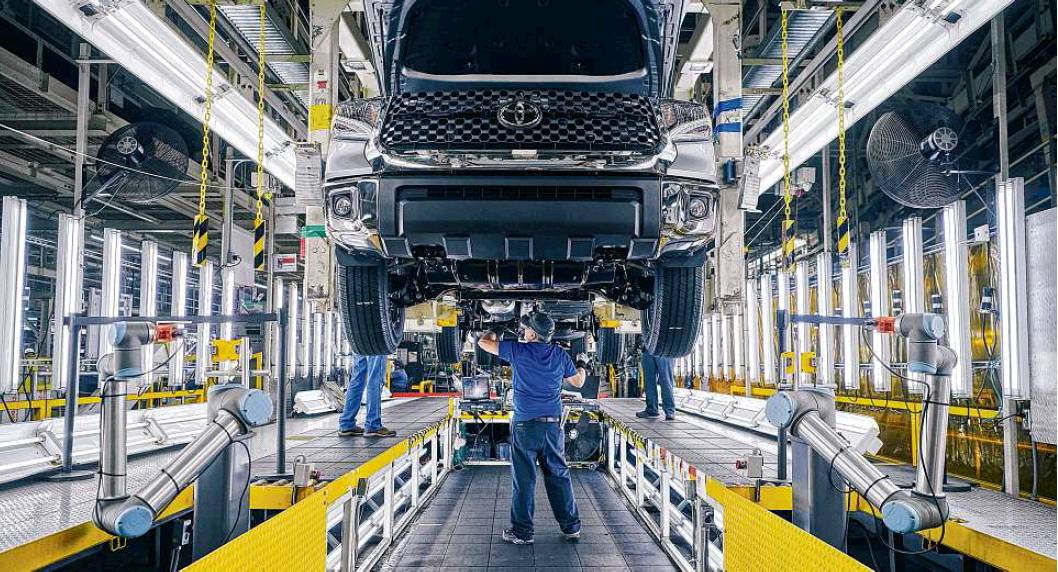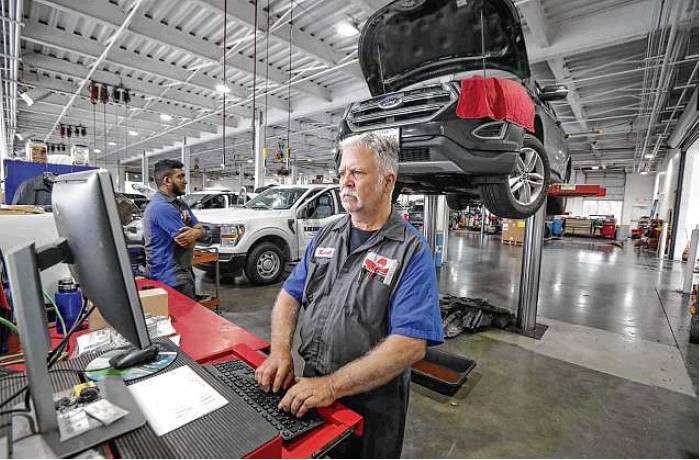COVER STORY
Pandemic causes shortage of microchips for new cars
By Jorge A. Vela LAREDO MORNING TIMES
Entering a car dealership now, people might be surprised to see limited options or higher prices. Both are being caused by a global shortage on the microchips used in vehicles.
“Several factors have contributed to the shortage, but you can sum it up as a sudden increase in demand,” Director of the Texas Center for Border Economic and Enterprise Development Dr. Daniel Covarrubias said. “The pandemic has contributed to this increase in demand. As a result of many of us having to do home office and the early lock-downs of this health crisis, it led to many people increasing their time online whether it be with remote video meetings, streaming videos and movies, online gaming and shopping. This additional time spent online drove the need to produce more devices, computers, cameras and infrastructure such as data centers and web servers that all need these microchips or semiconductors to power them.”
He said the pandemic is to blame for this problem as it led to factories closing and other issues.
“The pandemic created the perfect storm for the microchip market and supply chain,” Covarrubias said. “It all began with the microchip factories closing overseas when the lockdowns due to the pandemic started. This created backlogs when they reopened. Add to this that the auto sector miscalculated its microchip demand because of weak sales during the pandemic and a faster economic recovery than they were expecting.”
Covarrubias said as manufacturers saw companies were closed and the demand for more household products grew, the need for these components to make vehicle microchips went to them instead of the major automakers already in the market.
“You also must account for the surge in time spent online and computers and devices bought for working from home,” Covarrubias said. “All these factors were caused by the pandemic.”
Covarrubias said older models might not have needed the microchip, but newer cars do as they enhance the experience for the driver.
“Cars are now being called computers on wheels, which means that microchips are ever more present in all vehicles, from their safety features, entertainment and navigation hubs to their autonomous driving capabilities,” Covarrubias said.
According to Covarrubias, many of the big automakers reported reduced profits because of their inability to produce cars due to this shortage.
However, the companies were not the only ones impacted by this shortage of microchips. The local air travel industry was also impacted.
“We are still seeing cargo traffic lower than 2019 but higher than 2020. We attribute this to the microchip shortage in auto manufacturing, and I believe we will see a high number of cargo aircraft when the microchips are available to manufacturers,” Laredo International Airport Director Jeffrey Miller said.
The fact that many auto workers in Nuevo Laredo have reported shortened hours or the inability to continue manufacturing cars and rather focusing on other products has led them to cut some hours for their workers. It shows how the global problem is not just at the macro level on companies but also extends to the employees and consumers of these products.
Even though there has been a new push by the federal government to call for more electric cars, Covarrubias said this is not the answer to the microchip shortage problem. He said it will only increase the demand at the moment for more microchips as these new vehicles require even more technology to operate.
“Electric cars are not the answer for this problem of microchip shortages and supply chain constraints,” Covarrubias said. “Electric cars use the same if not more microchips than non-electric vehicles. They are part of the answer to other problems, so I believe the president's push for more electric cars is due to climate change and better control over emissions.”
As the shortage continues, the business director said he has no clue when the situation will improve for this essential car component. He said as demand increases, the only way to satisfy customers will be to increase this supply.
“I wouldn't know an exact time or date,” Covarrubias said. “I would add here that a positive effect of this shortage is that the big microchip producing companies such as Intel and Taiwan Semiconductor Manufacturing Co. have announced new investment plans for new factories and production lines to be better prepared for future demand increases.” jorge.vela@lmtonline.com



